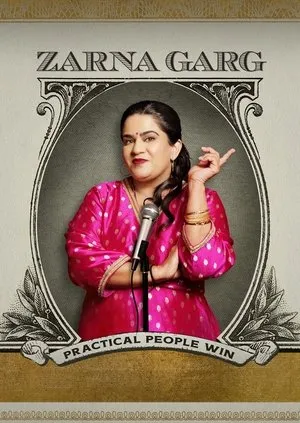Almost Family (2025) is a heartwarming comedy that explores the dynamics between families from different cultural backgrounds. The film centers around a Brazilian father who travels to Bariloche to meet his daughter’s Argentine in-laws, only to find himself in the midst of a playful yet intense rivalry. This international clash of cultures sets the stage for a series of humorous events and touching moments, highlighting the universal themes of family, love, and understanding. The movie opens with the Brazilian father, Ricardo, eagerly anticipating a peaceful and friendly encounter with his daughter Sofia’s new family. Sofia has been living in Argentina for several years and is deeply integrated into the local culture. Ricardo, proud of his Brazilian heritage, is excited to see his daughter thriving but also carries a sense of protectiveness and a desire to ensure she remains connected to her roots. Upon arriving in Bariloche, a picturesque city in the Argentine Andes, Ricardo is warmly greeted by Sofia and her in-laws, the Martinez family. However, it quickly becomes apparent that the Martinezes are a boisterous and fiercely proud Argentine family, deeply rooted in their traditions and customs. The patriarch of the Martinez family, Eduardo, is a charismatic and competitive man who immediately sees Ricardo as a worthy opponent. What begins as friendly banter soon escalates into a full-blown rivalry, with Ricardo and Eduardo constantly trying to outdo each other in various activities, from cooking traditional dishes to participating in local games. As the rivalry intensifies, Sofia finds herself caught in the middle, trying to mediate between her father and her in-laws. She loves both her Brazilian heritage and her Argentine family, and she wants everyone to get along. However, the cultural differences and the competitive nature of Ricardo and Eduardo make it increasingly difficult to maintain peace. The film cleverly uses humor to explore the cultural nuances and stereotypes that exist between Brazilians and Argentines. Ricardo, for example, is portrayed as a laid-back and easygoing character, while Eduardo is depicted as passionate and assertive. These contrasting personalities lead to many comedic situations, as they clash over everything from food and music to sports and politics. Despite the rivalry, there are also moments of genuine connection and understanding between Ricardo and the Martinez family. As they spend more time together, they begin to appreciate each other’s cultures and traditions. Ricardo learns to admire the Martinezes’ strong sense of family and their deep connection to their heritage, while the Martinezes come to appreciate Ricardo’s warmth and his love for his daughter. The film also explores the theme of family acceptance. Sofia’s decision to move to Argentina and marry into a different culture has been a source of both pride and concern for Ricardo. He wants her to be happy, but he also worries about her losing touch with her Brazilian roots. Through his interactions with the Martinez family, Ricardo comes to realize that Sofia has found a loving and supportive family in Argentina, and that she is capable of embracing both her Brazilian and Argentine identities. As the film progresses, the rivalry between Ricardo and Eduardo reaches its peak during a traditional Argentine barbecue. Both men are determined to prove their culinary skills, and the competition becomes fierce. However, as they work together to prepare the meal, they begin to bond over their shared love of food and family. In the end, Ricardo and Eduardo come to a mutual understanding and respect. They realize that their rivalry was simply a way of trying to connect with each other and to protect their respective families. They embrace their differences and celebrate the unique blend of cultures that has brought them together. Almost Family is a delightful comedy that celebrates the importance of family, the beauty of cultural diversity, and the power of love to overcome differences. With its charming characters, witty dialogue, and stunning scenery, the film is sure to entertain and uplift audiences of all ages. The movie reminds us that while families may come from different backgrounds and have different traditions, they are all united by the same fundamental values of love, loyalty, and support. The film is a testament to the idea that family is not just about blood relations, but about the bonds we create with the people we choose to surround ourselves with. It is a celebration of the human spirit and the ability to find common ground even in the most unlikely of circumstances. Welovecinema.top highly recommends this movie.

Almost Family (2025)
In "Almost Family," a Brazilian father anticipates a cordial meeting with his daughter's Argentine in-laws, but instead finds himself embroiled in a spirited international rivalry. Set against the scenic backdrop of Bariloche, the film explores themes of family dynamics, cultural clashes, and the universal experience of navigating relationships. The comedic narrative highlights the humorous challenges and unexpected bonds that emerge when families from different backgrounds come together. The movie promises a lighthearted and engaging story about love, family, and the surprises that life can bring.











